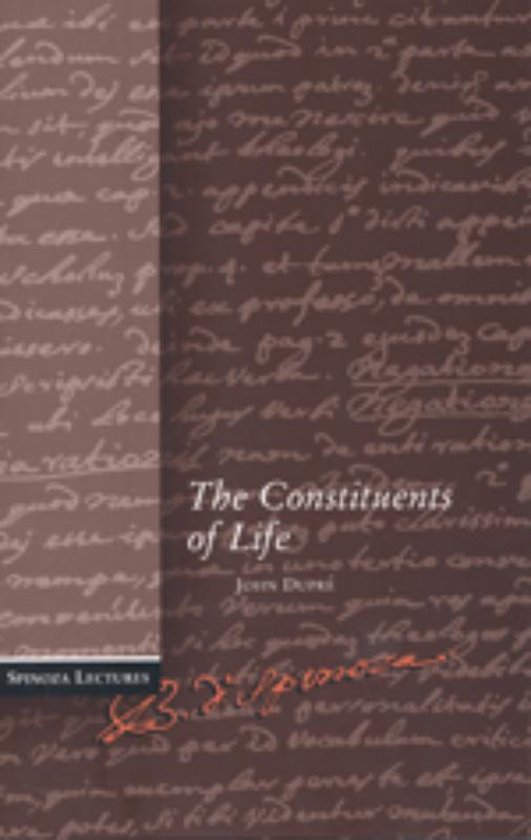 Auteur: Dupré
Auteur: Dupré 
| Uitgever | Gorcum b.v. |
| Uitgavejaar | 2008 |
| ISBN | 9023243803 |
| ISBN13 | 9789023243809 |
| Taal | Nederlands |
| Type | Paperback |
'Spinoza Lectures
John Dupre received his Ph.D at Cambridge in 1981, taught at the universities of Oxford, Stanford and London, and is now Professor of Philosophy of Science at the University of Exeter (UK). In 2002 Dupre assumed the full-time directorship of Egenis, The ESRC Centre for Genomics in Society, for which he was awarded an initial grant of £2.5m from the UK Economic and Social Research Council. Egenis undertakes a wide range of research into the social implications of recent developments in the biological sciences. His book The Disorder of Things: Metaphysical Foundations of the Disunity of Science (Harvard University Press, 1993) articulates a non-reductive, indeterministic and pluralistic metaphysics, and argues that this is much better suited to understanding contemporary science, especially biology, than is the monistic physicalism assumed by most contemporary philosophers of science. This general picture provided the background for extended critical discussion of evolutionary psychology and rational choice theory in Human Nature and the Limits of Science (Oxford University Press, 2001). Humans and Other Animals (Oxford: Oxford University Press, 2002) collects a number of papers on issues very broadly related to the classification of organisms. His most recent book, Darwins Legacy: What Evolution Means Today (Oxford: Oxford University Press, 2003) presents a brief view of the current state of evolutionary thinking, aimed at a general audience.
These lectures address the topic of biological ontology. It is common to think of this in terms of a hierarchy, of which the smallest distinctively biological parts are biological macromolecules. These are thought of as parts of individual organisms which, in turn, are taken to compose ecological communities and lineages or species. Starting with the most familiar molecular objects in biology, genes, there is a natural intermediate hierarchy through genomes and cells to organisms.
Yet the entities in these hierarchies have proved enormously recalcitrant to any kind of definition. The division of the biosphere into species, or the division of the genome into genes have proved impossible to specify in a unique way determined by nature. This has led Dupre to defend various forms of pluralism. The classification of biological entities at many levels of the hierarchy is not fully determined without specifying a purpose for which the classification is intended. Also, entities at higher levels of the hierarchy are as real as entities at the bottom, molecular, levels. This claim has become particularly pertinent to recent discussions concerning integrative systems biology.'